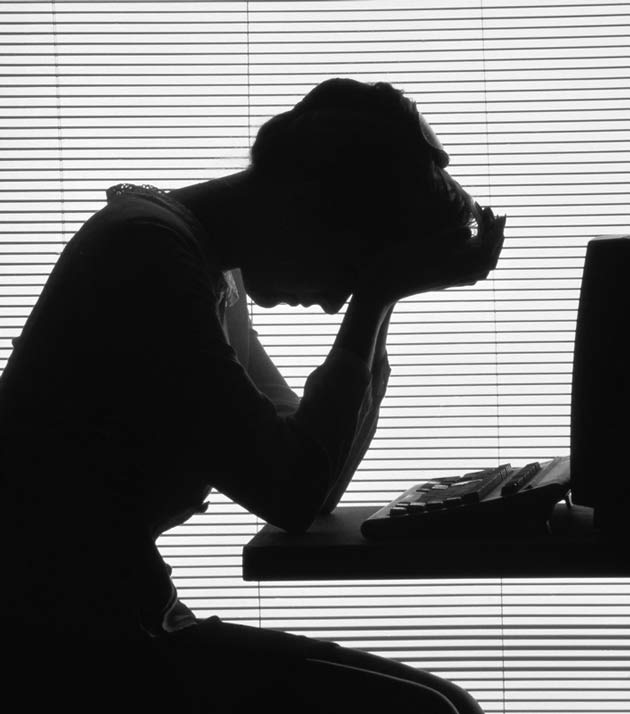Stress and Suicide in Hard Times: How People Really React

The economy is in bad shape, as the pundits have coined it, "from Wall Street to Main Street." Anyone following the news has some idea of what that may mean for their retirement savings and home loans, but what about the less obvious effects of social and economic hardship?
The more subtle effects are often quite unexpected—and sometimes counterintuitive. For example, while money troubles may evoke visions of penniless and desperate Wall Street investors jumping to their deaths during the Great Depression, that is actually a myth.
Loren Coleman, an expert on suicides and author of "The Copycat Effect," notes that suicides actually decrease during times of social and economic stress: "Historical studies conducted by sociologist Steven Stack and others have discovered a noticeable dip in suicides and related violent events when there is society-wide anguish, for example, in times of massive immediate grieving in periods of wars and economic depressions."
Though hard times may not drive you to suicide, the stress they create can be dangerous.
The role of stress in health problems, from high blood pressure and heart disease, is well established. Then there are the secondary effects of stress that trigger unhealthy behaviors such as smoking.
In times of stress, people tend to seek comfort — and comfort foods. People who are worried about their retirement and paying the bills are even more likely to want hamburgers and a night of relaxing on the couch instead of carrot sticks and hitting the treadmill. Add to that the disparity between cheap fast food and expensive healthier food, and the troubled economy will hit not only the wallets but the waistlines of many Americans.
In some cases, the stress can be fatal, especially to unborn males.
Sign up for the Live Science daily newsletter now
Get the world’s most fascinating discoveries delivered straight to your inbox.
Research has shown that fewer males are born during times of hardship. Exactly why is not clear, though one theory suggests that male fetuses tend be weaker than females and therefore are aborted at higher rates. Basically, the pregnant woman's body decides to cut its losses and self-abort the less viable male children rather than wasting potentially scarce resources carrying them to term.
Researchers have also found that levels of superstition and magical thinking increase during times of stress and economic uncertainty. People turn more to astrology and psychics, looking for comfort and reassurance that everything will be okay. Superstitions also give many people the illusion of control over some part of their lives. For people in the grip of magical thinking (which is practically all of us at one time or another), lucky numbers or rituals help us to believe that we are overcoming (or at least gaining an edge over) the seemingly randomness of an uncertain world.
The U.S. economy will, sooner or later, recover. But the effects of the economic crisis will be felt for generations, probably in more ways than we can know.
Benjamin Radford is managing editor of the Skeptical Inquirer science magazine. He wrote about the media and pop culture in his book" Media Mythmakers: How Journalists, Activists, and Advertisers Mislead Us." His books, films, and other projects can be found on his website.










